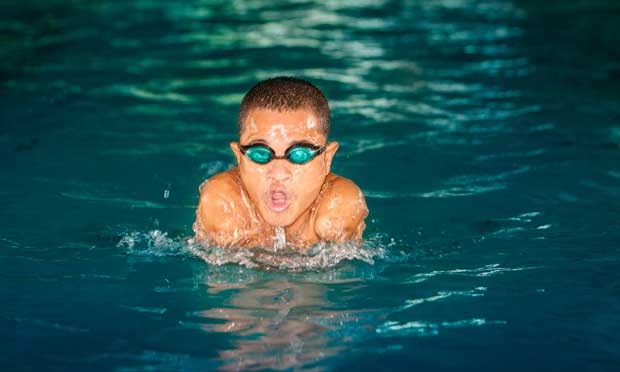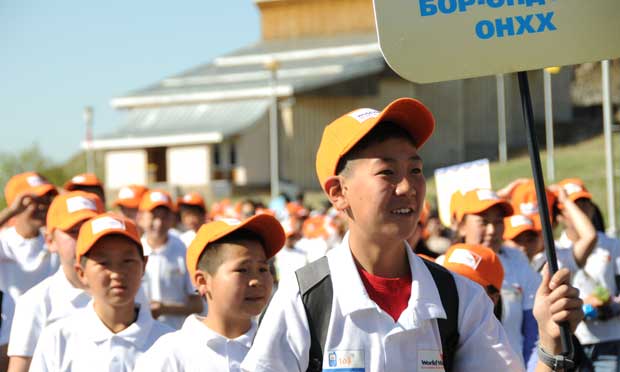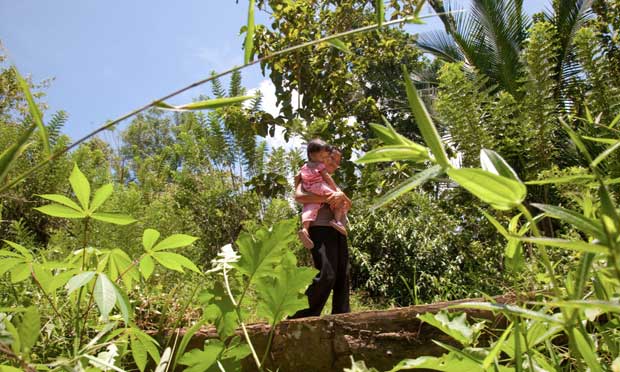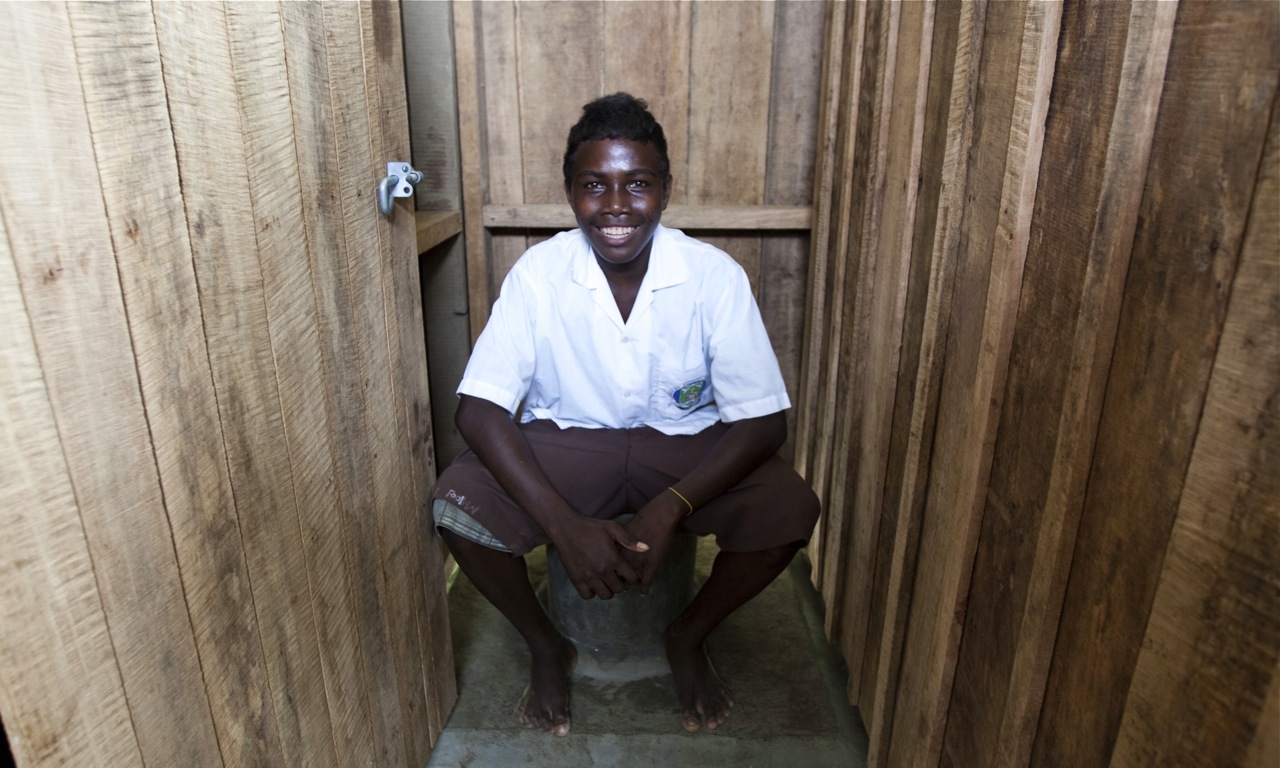10 ways World Vision is working with young people to improve their well-being
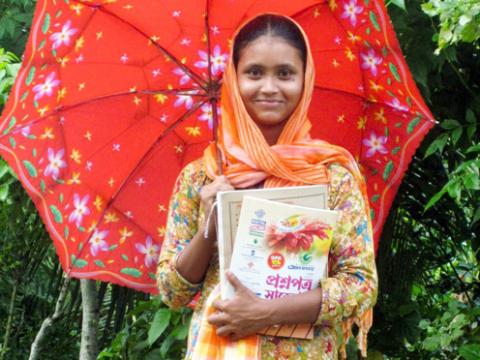
What makes you happy? Where do you find joy?
Those questions are being asked across the world today, as the international community celebrates International Youth Day. This global event is marked every 12 August and in 2014 the theme is “Mental Health Matters.”
What is mental health?
Mental health refers to a person’s well-being, confidence and self-esteem.
For the estimated 700 million youth living in Asia and Pacific, mental health is important for young people to be in positive relationships, to use their gifts and reach their potential, and to deal with life’s challenges.
As an organization focused on helping children and youth achieve their potential, we’ve been working with Asia-Pacific’s most vulnerable youth and helping them become happier and healthier. Here’s how:
1. Creating safe spaces where youth can connect
Developing and keeping strong relationships has a great effect on our wellbeing.
In Bangladesh, youth clubs play a vital role in saving girls from child marriages. Fifteen-year-old Suborna was days away from a pending marriage, and about to drop out of school, when her friends in a World Vision supported youth club took action. Find out what happened
2. Helping youth achieve their goals
Setting an academic, professional or personal goal, and writing down the steps to help you realize your goals, leads to a marvelous sense of accomplishment and self-worth.
In Thailand, World Vision assists young people to reach academic goals by providing university bursaries –ensuring young people who would not be able to afford post-secondary education have access to it. Watch how bursaries benefited Viranee and Sakunrat
3. Ensuring youth’s thoughts and opinions are heard
Expressing thoughts, feelings, and opinions leads to an improvement in mood, and self-empowerment, researchers from the UK have found.
For 13-year-old James in the Philippines, being able to speak out about climate change and disaster preparedness in his community, and having his views heard by government leaders, has led to increased confidence. Prior to getting involved in calling for change, James was teased relentlessly at school. “I realised that I am not useless and I can contribute,” he says. Find out more about James
4. Making sure disabled and at-risk youth have opportunities
Regular exercise boosts moods and makes you feel good, scientists have found.
In Myanmar, there is no greater testament to this than 19-year-old Aung Nyein Oo – a former street child turned competitive swimmer. Aung Nyien Oo lost both his arms after he was involved in a train accident, causing him to lose hope. Through a World Vision supported project for street children, Aung Nyein Oo learned to swim and has been racing ever since. He’s last been seen swimming, and winning, at the South Asia Games. More about Aung
5. Encouraging young people to embrace creativity
Joining a club or group who share similar interests fosters a sense of belonging and is good for your mental health.
In Sri Lanka, it’s drama, drama, drama as members of a child society practice and perform plays related to child rights. Eighteen-year-old Sakuntala explains youth are developing their talents through arts and public speaking, by performing their play and leading discussions about it throughout the country. Learn more about the program
6. Supporting places where youth can ask for help
When life feels like it is spinning out of control or there is no one to talk to about a problem, young people can ask for help at confidential telephone help lines.
In Mongolia, the toll free, 24/7 Child Helpline 108 provides a listening ear to children facing crisis and who need help. It’s an initiative supported by World Vision and its partners. What's the number?
7. Helping young people learn a new skill
Learning a new skill - such as cooking a new recipe or learning to fix a car - improves mental fitness, while providing a sense of progress and achievement.
In Cambodia, rural young people like 19-year-old Sorphany are getting connected for the first time by learning to use World Vision provided laptops and digital cameras. Sorphany's Story
8. Promoting youth volunteers
Volunteering your time for a cause or issue that you care about helps you feel good about yourself and your place in the world. And it improves the lives of others is sure to improve your life too.
In Nepal, young people are volunteering their time to lead environmental discussions – talking about climate change at local and national levels. Learn about youth and the environment
9. Helping youth eat healthy foods
What you eat has an effect on your health. A balanced diet that nourishes your body also helps your mind feel good.
In Indonesia, youth are leading their communities to ensure everyone has nutritious food to eat. Organic farming and creative food processing helped youth inspire their communities to eat healthier and wiser. “After watching how our parents enjoy gardening, we became interested to join the movement. We have received some seeds from World Vision and planted chilies, eggplants, also, string beans. We find this after-school activity very useful,” says Aneks, 15, a youth club leader. Learn more about food resilience
10. Ensuring young people live in a clean environment
The physical environment a person lives in can have an impact on their mental well-being. Researchers have found that when a person lives in a place that causes risk to their health, their mental health is also affected.
In Solomon Islands, more than half the people don’t have access to a safe toilet or latrine. However, World Vision is working tirelessly to change this, partnering with communities to build sanitation systems and household latrines. Learn about rural sanitation
Research and writing by: Ms. Vannasone Vanno & Mr. Mark Nonkes

